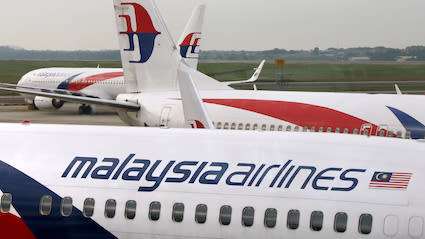Govt should not wait, issues on Malaysia Airlines taking too long

(Bernama) – The issue of Malaysia Airlines Bhd’s (MAB) turnaround and its return to profitability is not something new.
It has long been a big question mark among the domestic and international aviation industry whether the country’s national carrier “could return to profitability”.
Recently, AirAsia Bhd Group co-founder Pahamin Ab Rajab expressed a desire to “save” Malaysia Airlines with a proposed takeover which has been submitted to Prime Minister Dr Mahathir Mohamad.
Pahamin’s effort with five unnamed entrepreneurs was not based on any commercial considerations, but rather on his strong love for the country. He also made a commitment not to slash any jobs if his effort in taking over the airline succeeded.
To recap, Australia’s national carrier, Qantas Airlines Ltd, had also planned to acquire Malaysia Airlines a decade ago but its bid failed following pressure by the MAS union.
Low-cost carrier AirAsia also came close to forging a share-swap agreement with Malaysia Airlines in 2011, but a crisis and internal interference from the airlines are said to have caused the agreement to collapse.
The question on everyone’s mind now is, when will the issue of Malaysia Airlines’ takeover reach its conclusion?
According to veteran journalist A Kadir Jasin, the government can no longer wait because the issue of the airline’s turnaround and its recovery have long been delayed, with no signs of progress.
He praised the interest and proposals from within the country to help lift the dignity of Malaysia Airlines and nurse it back to health.
“The government and Khazanah will definitely review all the proposals on their merits.
“Foreign and domestic proposers can combine, as efforts to restore Malaysia Airlines need various expertise, experience as well as large capital,” he said.
Malaysia Airlines was fully taken over by Khazanah Nasional Bhd, which emerged as the carrier’s largest shareholder in 2014, even though the country’s sovereign wealth fund already held 70% of the airline’s shares.
Like an astrologer, Mahathir at that time predicted that the airline’s 100% ownership by Khazanah would not be much different from 70% ownership.
He was puzzled by the airline’s privatisation move, because Khazanah is a government-owned company, asking whether “is it called privatisation or nationalisation?”
Despite becoming a privately owned company with four recovery initiatives costing almost RM25 billion, the hope of Malaysia Airlines’ recovery still looks bleak.
Several market analysts suggested that it is better to sell or even close the airline, rather than watch MAB continue to bleed.
In tandem with those suggestions, Mahathir said the government was considering the move after MAB kept registering losses due to several factors, including the shortage of crew, in the second half of 2018.
The prime minister has made it clear the government can no longer afford to fund the airline.
Bank Islam Malaysia Bhd chief economist Mohd Afzanizam Abdul Rashid said the airline industries are expected to witness strong demand going forward.
Therefore, he said Malaysia Airlines needs to carefully plan its capital expenditure requirement and, at the same time, become cost-competitive.
According to him, the national carrier also needs a robust hedging strategy, due to the volatility of jet fuel prices.
He said it is worthwhile for MAB to consider the offer made by Pahamin and partners, if they could turn around and add value to the airline.
“Operational efficiencies are critical to Malaysia Airlines, especially in the context of leveraging the technologies that will improve passenger experience.
“Not to mention managing staff morale as the previous rationalisation exercise saw a huge number of job cuts.
“This is also important as human resources are one of the critical success factors, especially when dealing with passengers,” Afzanizam said.
Pahamin reportedly said if their proposal to turn the ailing airline around received the go-ahead from the government, there would be no job cuts, intact national branding and no loans or guarantees from the government.
The proposal was offered through their vehicle, Najah Air Sdn Bhd.
This is a proposal worth considering since it comes from people who have run a low-cost airline successfully.
Putting Malaysia Airlines on the path to profitability expeditiously must be the priority.
There is no need to succumb to pressure from vested interest groups, which only want to undermine genuine market-driven initiatives to resuscitate Malaysia Airlines.

